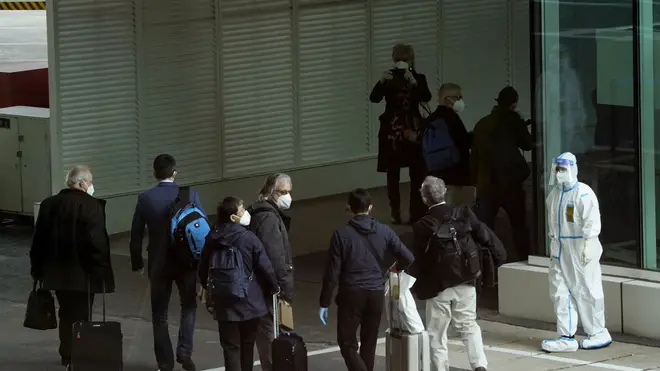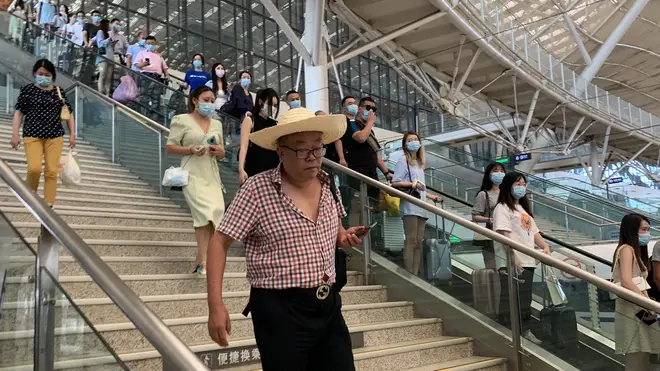
Richard Spurr 1am - 4am
14 January 2021, 06:44

A World Health Organisation (WHO) team has arrived in Wuhan to probe the origins of the coronavirus pandemic.
It comes as China is experiencing a new surge in coronavirus cases and has reported its first Covid-related death in months.
The latest death raises the toll to 4,635 among 87,844 cases, and China's relatively low case figures are a testimony to the effectiveness of strict containment, tracing and quarantine measures.
However, the figures have also raised questions about the tight hold the government maintains on all information related to the outbreak.
CGTN, the English-language channel of state broadcaster CCTV, reported the WHO team's arrival in the early hours of Thursday.
A government spokesman said this week they will "exchange views" with Chinese scientists but gave no indication whether they would be allowed to gather evidence.
Read more: China records first case of new Covid variant first seen in UK
Read more: China approves state-owned coronavirus vaccine

The WHO team will undergo a two-week quarantine as well as a throat swab test and an antibody test for Covid-19, according to a post on CGTN's official Weibo account, but will start working with Chinese experts via video conference while in quarantine.
Meanwhile, the National Health Commission said Heilongjiang province in the region traditionally known as Manchuria recorded 43 new cases, most of them centred on the city of Suihua outside the provincial capital of Harbin.
The northern province of Hebei just outside Beijing, which has seen China's most serious recent outbreak, recorded another 81 cases, marking the second straight day the country's total number of local infections has risen into triple digits.
Another 14 cases were brought from outside the country.

'We need to think about border control' Professor tells LBC
China has put more than 20 million people under varying degrees of lockdown in Hebei, Beijing and other areas in hopes of stemming infections ahead of next month's Lunar New Year holiday.
The government has cut travel links to and from several cities, urged people to stay put for the holiday, postponed important political gatherings and plans to let schools out a week early to reduce the chances of infection.
Scientists suspect the virus that has killed 1.9 million people since late 2019 jumped to humans from bats or other animals, most likely in China's southwest.
The WHO team includes virus and other experts from the United States, Australia, Germany, Japan, Britain, Russia, the Netherlands, Qatar and Vietnam.